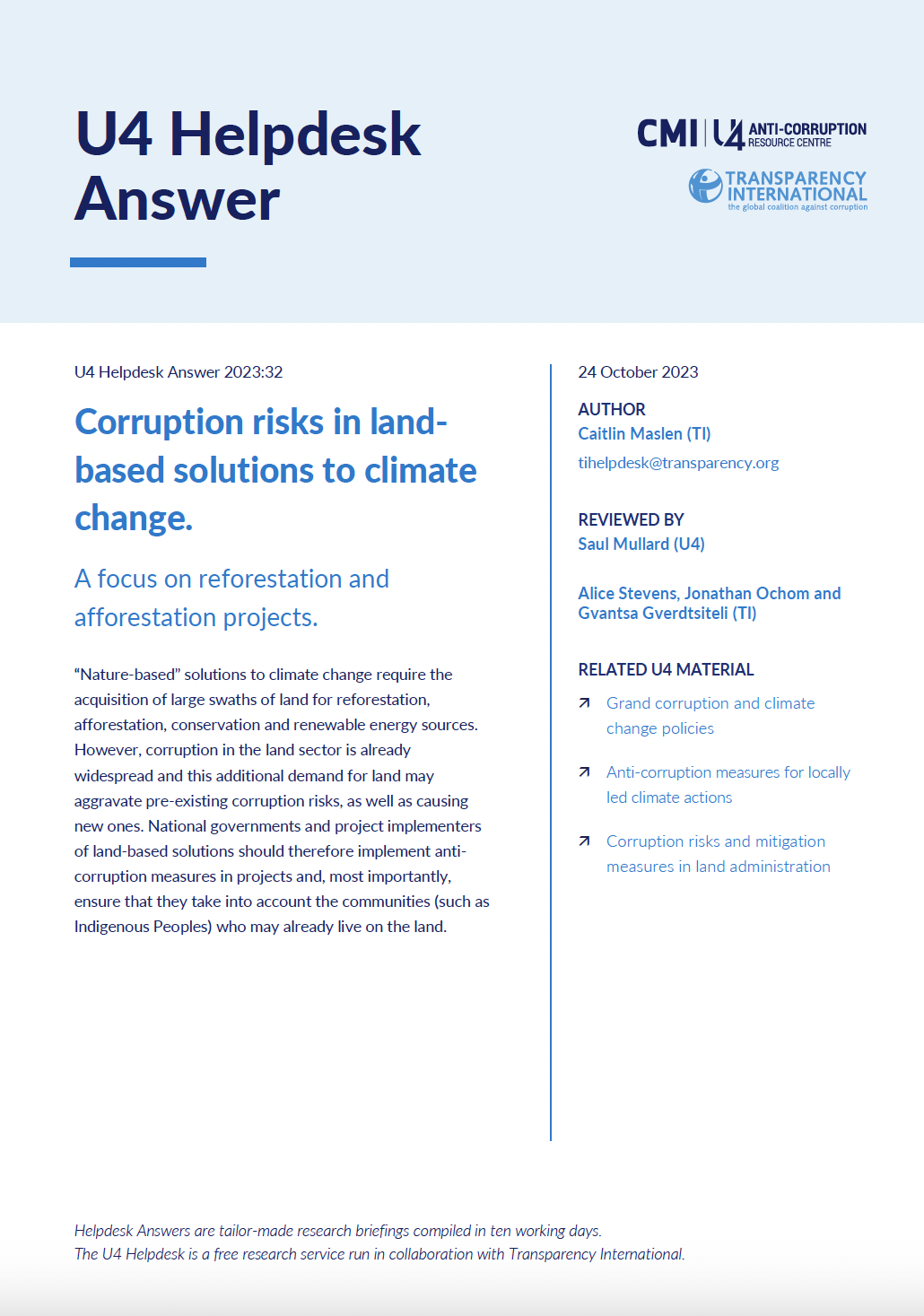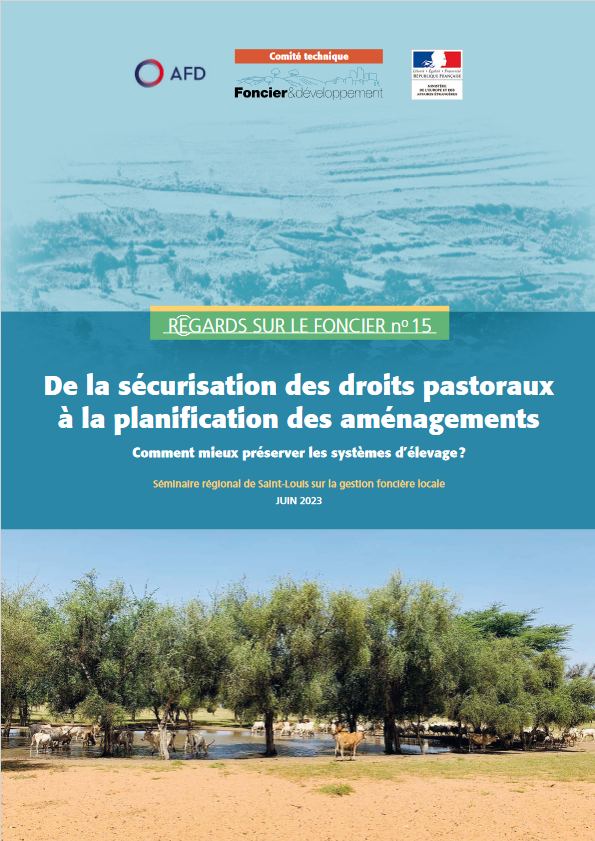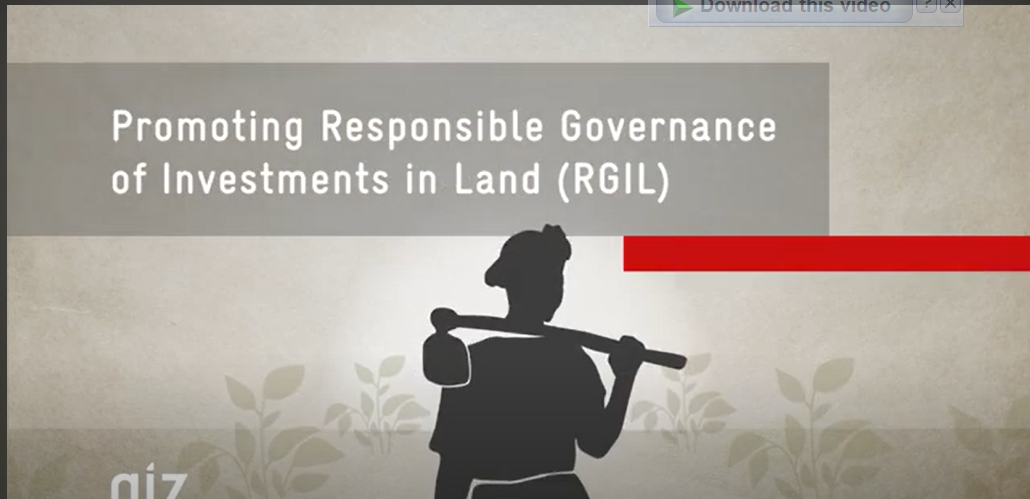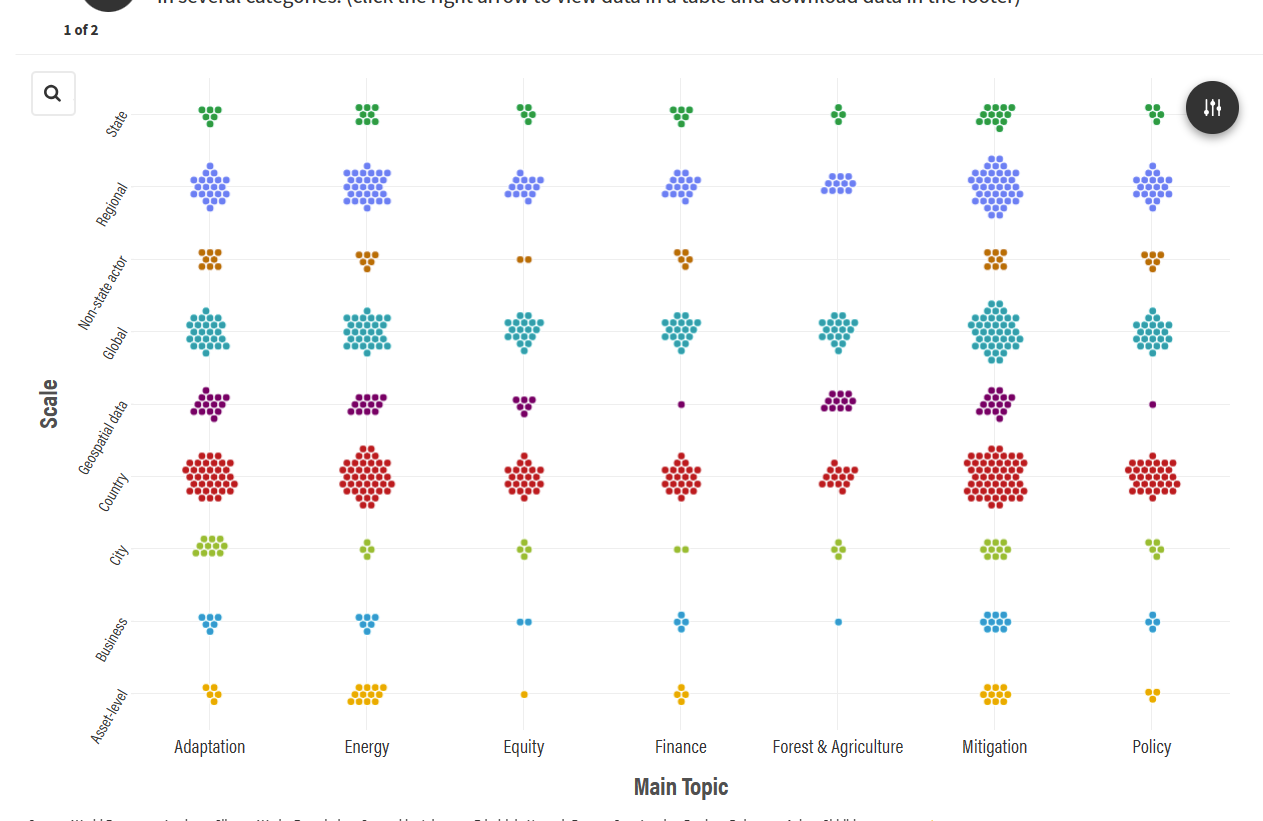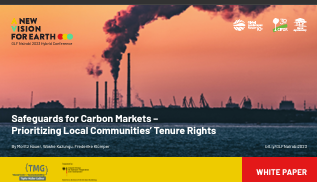Corruption risks in land-based solutions to climate change
“Nature-based” solutions to climate change require the acquisition of large swaths of land for reforestation, afforestation, conservation and renewable energy sources. However, corruption in the land sector is already widespread and this additional demand for land may aggravate pre-existing corruption risks, as well as causing new ones.

